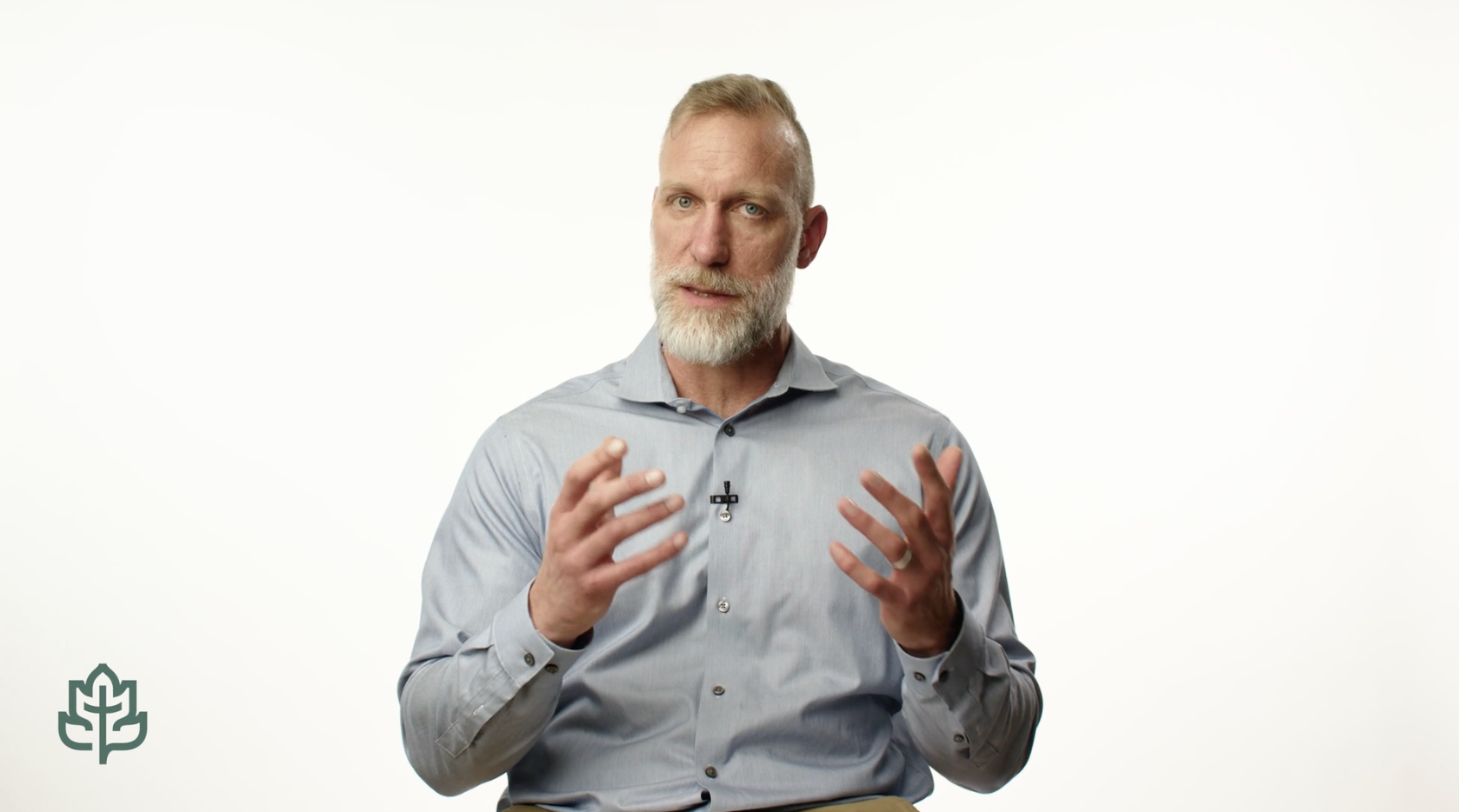Living with anxiety is hard. Yet as finite beings in a fallen and broken world, anxiety makes sense. We are each confronted with life circumstances we cannot change, decisions with no obvious right answers, and a future that is more uncertain than we would like. Our lives always entail a degree of risk—there are no foolproof guarantees for safety and favorable outcomes. We cannot be certain we will reach our goals for good health, long-lasting relationships, or success—and we cannot ensure that for those we love, as well. Though we make earnest efforts to minimize risks, we cannot eliminate them altogether. David Powlison once said, “So much of the noise in our lives is trying to control the uncontrollable.” There is a gap between our desire to secure certain outcomes in our lives and our ability to ensure they happen. We have less control than we may think or want, and the lack of it so often leads us to anxiety.
How do we usually pray when we’re anxious? Often, we pray for favorable circumstances: “Please protect me from this dreaded outcome, God. Please make this work out. This way seems best. Please give me what I want here.” In this, we acknowledge that we can’t control our future but that he can and does—so we ask our all-powerful, sovereign God if he might be willing to do what we think would be good. We ask him to give us what we want or to spare us from what we don’t want.
We may also pray for reprieve: “Please take away this anxiety, God. Please give me peace.” We ask for relief from sleeplessness and knotted stomachs, and we long for a palpable sense of comfort amid the inner turmoil and worry.
We often pray for more wisdom and clearer guidance: “Please give me wisdom to make the best decision here. Tell me what I should do. Make your will clear. Don’t let me choose the wrong way.”
There is nothing wrong with these prayers. They are biblical. It is good to speak our honest desires to our gracious Father. To ask for peace when we are anxious is exactly what the apostle Paul calls us to in Philippians 4:6–7. To grow in wisdom and to rely on God for guidance captures so much of what the Christian life ought to be. These are the prayers I pray in moments of anxiety.
Paul shows us what it looks like to pray fervently, encourage, and so much more. He knew people, he knew God, and he knew how to apply that knowledge in his care for others, rooted in Christ’s perfect love. Want to learn more? Purchase the full audio download for the 2025 CCEF National Conference: To Live Is Christ: The Life & Ministry of Paul.
Yet one Sunday I tried a different prayer. It was inspired by the closing worship song at church—"The Cause of Christ." In the first verse, Kari Jobe expresses that her only desire in life is to be known for loving Christ, to build his church, and to make Christ's name known to others (the full song with lyrics can be accessed here). As I sang the words with the congregation, I realized that among the many other desires I had for my life, my ultimate desire could be to love Christ and to be known for loving him. I realized that as much as I wanted the Lord to get on board with my self-prescribed life plans—plans that entail safety, success, love, and happiness—I also wanted my life to be marked by genuine fidelity to my Savior. With this first verse, my anxious heart felt pierced and reoriented, and I prayed my new prayer: "God, above all else, may I be known for loving Christ."
Since that Sunday, I have realized how much my desires, and subsequent anxiety, are still focused on trying to avoid or minimize suffering. I see how fixated I can be on avoiding worst-case scenarios, how weary I become when in futility I try to control the uncontrollable. I still find myself pleading with God to lead my life in a way that I can avoid pain. I still ask him to spare me from making decisions that will one day result in sadness and regret, and the unknowns of the future still worry me. I am still anxious.
But the first lines of the song planted a new seed in my heart, because they held forth the possibility that I could be captured by another desire—not the desire for a zero-risk, pain-free, mistake-less life, but something else. I could be captured by the desire to live my life in a way that my love for Christ would be evident without or with pain. And in a way that Christ’s goodness and glory would be evident to others, whether that entails the fruition of my deepest longings or my worst-case scenarios. The words held forth the possibility that I could still lead a precious life before Christ and others, even if my future includes the heartache of grief and disappointment. It could be a beautiful Christ-honoring life—not just in spite of suffering, but even through suffering. Not just in spite of failures, but even through failures. They held forth the possibility that suffering may come, but it wouldn’t have the final say. Christ could glorify himself and bring about redemption and purposefulness in sorrow. I imagined the life of a woman who would dedicate her life to loving God and loving others for all of her days, the best that she could, even if her life looked like shattered glass and debris. A life known for loving Christ.
Some of you may be struggling with anxiety, too. You worry about making the right decision, fearful that your fallible discernment will lead you to miss God’s best, resigning you to Plan B. You wonder if God will hear your prayers for favorable outcomes, or if unfulfilled longings await you. You wonder if your life will be filled with costly mistakes and thwarted ambitions. Your heart is weighed down as you confront your inability to secure the future and life you want for yourself or those you love, no matter how badly you may want to or try to. Many of these desires are truly legitimate and good, and God knows why you care so deeply about them.
There are no easy answers here. Yet please know that even if your life doesn’t play out the way you hope, it could still be beautiful and worthy before your God and Savior. In the possibility of pain, failure, or loss, your life could still demonstrate a genuine love for Christ. Even in the possibility of ruin and debris, your love for Christ and his glory and goodness can still shine, and it would be beautiful. Hard, and heart-wrenching, but beautiful.
My prayer for my anxiety? I imagine I will continue to cycle through the old familiar ones, but with a new one added: “God, may my love for Christ be genuine and abiding. In joy or in suffering, in whatever may come to pass, may my love for you be evident. And if this alone could be true—may that be enough.”
•
It can be difficult to rest in the grace of God amidst the throes of anxiety. If you are interested in learning more about the gift of the gospel that is rest, consider purchasing our full 2024 CCEF Rest Conference audio.
•
Related resource: A Small Book for the Anxious Heart: Meditations on Fear, Worry, and Trust by Ed Welch




